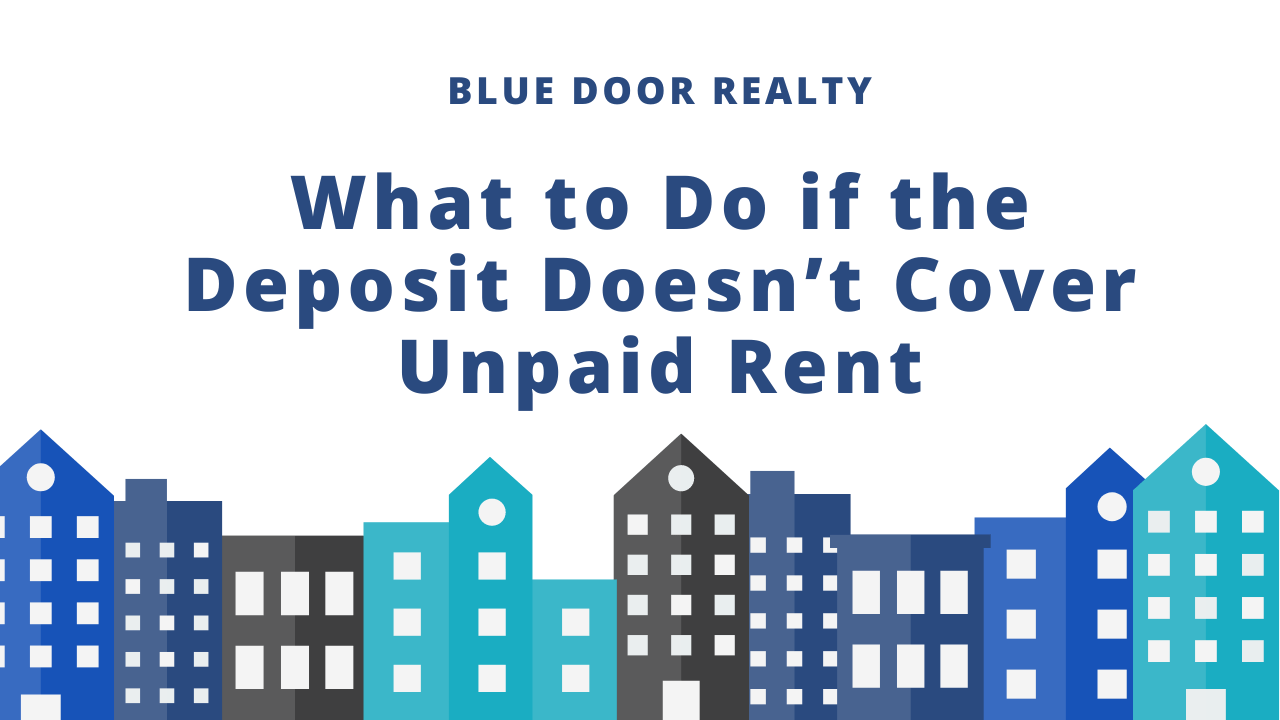Losses from overdue rent and destruction of property can cause extra expenses for landlords. In order to prevent yourself from bearing a large portion of the expenses of non-payment and home damages, security deposits should be requested.
This deposit serves as a motivator for your tenant to pay rent every month and abide by the terms of the rental agreement. If they are successful, they are eligible to have their deposit returned.
However, simply asking for a deposit doesn’t ensure that they will follow the rules. Some tenants may leave and in order to dodge their obligations. A security deposit helps reduce loss in a situation where the tenant abandons their liabilities. However, there are situations when landlords are unsure whether it is worthwhile for them to pursue owed rent or not.
Many landlords are unsure if a security deposit can cover unpaid rent. Below are a few tips to help you deal with the concerns that come up with delinquent rent.
1. Consult With the Tenant
Sending a letter or email is a great way to communicate with the tenant if you are unable to speak with them in person. Provide them with a detailed justification as to why the security deposit will only be partially or not entirely refunded. Ensure that you deliver the information within the legal window of time.

You need to include the following information in the letter:
- The sum of the security deposit they paid at the start of the lease term.
- If the work is ongoing then the reductions you have applied must represent a reasonable estimate of the expense of the job.
- The sum of the tenant’s security deposit that you are returning.
- The detailed breakdown of deductions. You may list the price of cleaning, the cost of fixing a broken window, or the price of new paint or a door lock. This makes more sense than just reporting the whole amount without any further explanation. You must give your tenant documentation and papers proving the real costs incurred if you have already deducted them from the deposit.
It’s recommended to specify the particular repair, the maintenance and the cost.
2. Send a Letter of Demand
If the tenant fails to respond to your original letter, the next step involves sending the tenant a demand letter. Should you require payment for the outstanding rent, this letter will detail the specifics. In order for the renter to get in touch with you again, it should include your phone number and the payable date.
Make sure the wording is simple and the tone is clear. Tenants may find it challenging to make an immediate payment due to personal issues.

It’s advisable to keep the lines of communication open in case you need to arrange payment choices. To make this work, you might need to schedule a face-to-face encounter.
3. Take the Legal Action
You should think about taking the tenant to court for small claims if they don’t respond to any attempts at communication. If you can provide compelling evidence, this legal strategy could give you the upper hand.
Going to small claims court, however, does not assure that the tenant will reimburse you for a number of reasons. Here are several reasons why the payment might not go through:
- It takes a while to plan your calendar and documentation to bring before the court. If your rented property is in another state, this could pose a challenge.
- The tenant might not have extra money on hand. No matter how badly you want to collect, you cannot compel a broke tenant to make a payment.
- When appearing in court, tangible evidence is required. Your submission would be irrelevant if you cannot provide sufficient support.
- Your renter might have launched a lawsuit against you if you did not respect tenant rights. The tenant may prevail in his claim if you are found to have engaged in discriminatory practices in your investment property.
4. Engage the Services of a Debt Collection Agency
If you’re pressed for time, you could think about hiring a collection agency. For a fee, the agency follows up on the payment on your behalf. The collection agency may also take a cut of the money they collect from the tenant.

Since collection companies have the tools and know-how to recover rent, they can be more successful. To guarantee that you’ll always be in compliance with the law, be sure to choose a trustworthy firm.
How to Avoid Unpaid Rent
It’s ideal to steer clear of finding yourself confronted with overdue rent since, as we all recognize, prevention is better than cure. There are various tactics you can use to lessen this potential problem.
1. Thoroughly Vet Potential Tenants
Perform a thorough background check on potential tenants before approving them. Assess a tenant’s financial standing by looking at their job, credit report, bankruptcy history, or history of evictions. This will help you find excellent tenants. Even though it could take some time, it’s worthwhile to take care in order to protect against potential losses.
2. Issuing a Notice of Eviction
Be cautious if a tenant continues to owe rent after their grace period has passed. Even if a renter has trouble making the payments, it is important to be firm with the deadline.
Notify the tenant first, then deliver a notice to communicate. The eviction procedure can be started if the renter ignores the “pay or vacate” notice.
Bottom Line: Engage a Property Management Company
It might be hard for a landlord to understand every nuance of these real estate regulations. Additionally, you must continuously be informed of any changes to the legislation.
Fortunately, Blue Door Realty has a group of knowledgeable experts who have extensive training in all facets of understanding property management legislation. This guarantees that when we manage your investment, your rental property will continue to be in compliance with the law.
If you require property management services and extensive knowledge of rental laws, contact Blue Door Realty.

